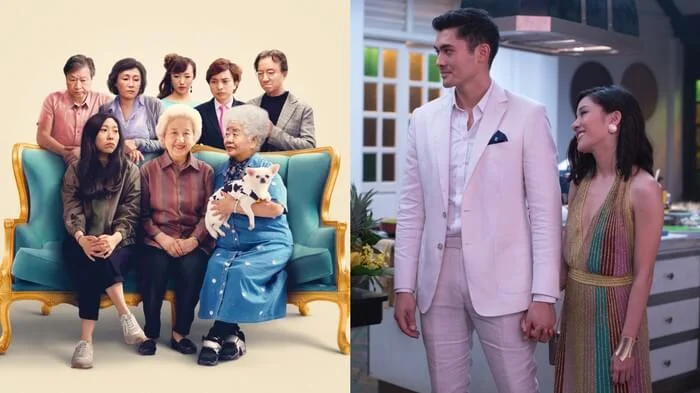In doing so, we’re reinforcing the basic premise of critics: that adherence to Western masculinity should be the yardstick by which manhood and sexual appeal are universally measured. Instead of rejecting objectification and fetishization—realities that Asian women face every day—Asian men are aspiring to such circumstances.
Read MoreBut there’s a clear objective to this objectification: detonation — to blow up the stereotype of the emasculated Asian man. If you’re not familiar with Hollywood’s troubled history of portraying Asian men, it’s a given that if an Asian man pops up in a mainstream movie, he’s going to be asexual.
Read More“They’re the ones who always do the right thing, stand up for the little guy and then fly away into the sunset. What could be more cool than that? I think seeing yourself represented in that way can have a profound impact on how you view your place in society, your cultural identity and what you are capable of achieving.”
Read More“There’s nothing else to call him but the butt of the joke, because everything that makes him powerful is the very thing that makes him laughable in the film,” said Yuen, who found the depiction and her theater’s reaction to it insulting. “His kung fu becomes a joke, and his philosophizing becomes a fortune cookie, and the sounds that he makes as he does kung fu are literally made fun of by Cliff. They made his arrogance look like he was a fraud.”
Read MoreThe story is framed and told by white men with little or no consultation from the Vietnamese community. And each time it plays, it will get a standing ovation because — well — the performances are strong and eclipse the racist details and macro-aggressions in the narrative.
Read MoreThere is growing desire to see hot Asian men up on the small and big screen. However, it’s still an unfortunate world that we live in when actors of color have a more difficult time landing leading roles, as Hollywood remains overwhelmingly white.
Read MoreIn addition to the new K-Pop category, BTS was nominated in three others — “Best Collaboration,” “Best Art Direction” and “Best Choreography.” But given the group’s overwhelming popularity, fans questioned why BTS and other K-pop groups needed to be separated from the main awards, such as “Best Pop” and “Artist of the Year.”
Read MoreBut while the current wave of movies makes the necessary first steps of representation, we must interrogate whose stories are being told. Judging by the roster of what's hitting theaters, Hollywood—and the people talking about its successes—seem stuck in the problematic loop of conflating "Asian" with "East Asian," boiling down the "Asian American experience" to one phrase that doesn't actually suit all.
Read MoreThe Chinese-Canadian actor, 30, was announced as Marvel’s pick for the role of the kung fu master in Shang-Chi and the Legend of the Ten Rings at Saturday’s panel at San Diego Comic-Con. The upcoming film marks Marvel’s first feature with an Asian lead.
Read MoreOh, yeah. It was a full-body experience. It’s a unique experience, to leave America and go to where you are “from.” Your whole life, you’re being told that you don’t belong here [in America]. Then you go there [to China] and really realize that you don’t belong there. But then you think about how this is your history too, and you can’t forget that part about yourself. That’s what happened to me.
Read MoreI’ve had managers, agents, producers and directors tell me to change my name, to color my hair lighter or darker, or to do my makeup in a more or less ‘exotic’ style.Multiracial Asians are often gently urged to push themselves out of the racial DMZ: to make themselves more Asian, or less, as if it's not possible to be both.
Read MoreIdentity isn’t a prescriptive solution. But when you’re uncertain of your place within society, it can help to have ready-made categories or narratives, even if you choose to reject them. There’s a power in being able to recognize our struggles as the result of paradoxes we live within rather than seeing them as purely private failings. It’s a step toward imagining lives that we might be the authors of, with endings that we write ourselves.
Read MoreHolding 100% score on Rotten Tomatoes, now holds the best per-screen-average of 2019, the comedic drama, directed by Lulu Wang and starring Awkwafina generated $351,330 when it opened in four venues. Prior to 'The Farewell,' the biggest screen average of 2019 belonged to 'Avengers: Endgame'
Read MoreAs Chinese food rises in stature and price, a new wave of white restaurateurs are realizing there’s money to be made in the field, just as Starr and Tepperberg did decades ago. But unlike then, Chinese communities in the U.S. or the U.K. now have the ability to critique the work of these chefs, thanks in part to social media.
Read MoreAhead of its release, some people were expecting the film to be a musical, like the 1998 U.S. animated version. Others were expecting a realistic adaptation of the original Chinese folk ballad that dates back to the sixth century. Everyone prayed it would be nothing like the leaked script from 2016.
Read MoreSince being cast as the star of Disney’s live-action remake of the animated movie, Bailey, who’s black, has become a target of racist trolling. Huey, who’s Japanese American, touched on the controversy in an interview with The Wrap and offered some advice to the fellow Ariel actress.
Read MoreThis tension is one of the first of dozens of relatable cultural touch points awaiting Asian American viewers of the film, especially those with immigrant parents who have long learned that getting by requires two completely different sets of rules: one for home life, and one for assimilating.
Read MoreResearchers from the University of Washington found that the hypothetical “gay Asian American man” was perceived as significantly more American than the hypothetical “Asian American man,” whose sexual orientation wasn’t specified.
Read MoreIt is about giving our communities a voice, raising our visibility, fighting for resources that should also be shared with us, making room for our history and contributions to this country, and accepting us as Americans as well. It’s striking to me given the demographic significance of Asian Americans in the U.S. We need Asian American studies really now more than ever.
Read MoreActors of color are often offered roles that, despite their depth and complexity, ask the actors to depict some sort of trauma or oppression in order to shift the audience’s perspective or spark conversation. By putting humorous and silly stories on stage, we continue to remove the boxes put around people of color and broaden the contexts in which we see them represented on stage.
Read More



















